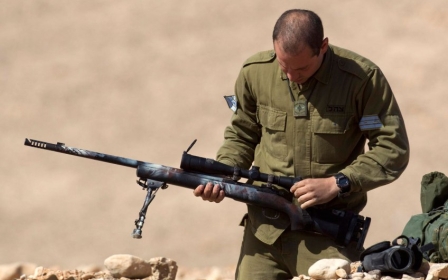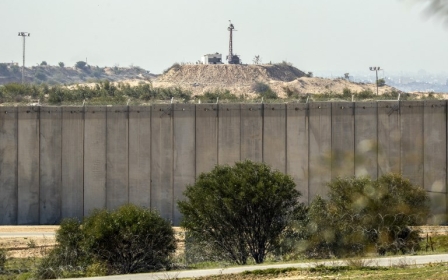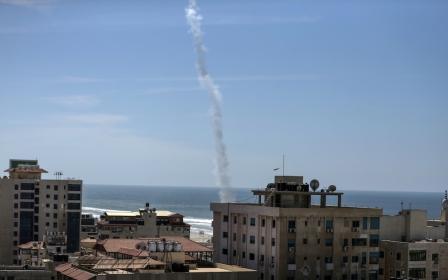Palestine and Israel brace for 'The Great Return March'

Palestinians in Gaza Strip are preparing to launch the "The Great Return March" on Friday to protest against Israel's refusal to allow refugees right of return to their pre-1948 homes.
Tents for media, portable loos, electricity cables and water pipes, and shaded areas for crowds have been installed east of Khan Younis, Rafah and al-Breej near the border fence that separates Israel from Gaza.
A large network of Palestinian activists - backed by the Palestinian factions Fatah, Hamas and PFLP - is preparing for a 46-day mass march to demand their right of return to their villages and towns in what is now Israel.
The protests are expected to continue until 15 May, which marks the 70th anniversary of the Palestinian Nakba (Catastrophe), in which more than 750,000 Palestinians were forcibly displaced by Israeli forces in 1948 Arab-Israeli war.
The march will begin tomorrow, 30 March, to coincide with what Palestinians call "Land Day" commemorating the day Israeli forces killed six Palestinians during protests against land confiscation in 1976.
The week-long Jewish holiday of Passover, when Israel heightens security, also begins on Friday.
The march will be in several areas including Gaza, the West Bank and Jerusalem. The organisers have also called for protests and marches in Jordan, Syria and Lebanon. But no preparations happened near the borders.
Mousa Abu Marzook, a senior figure in Hamas, tweeted that western officials called him and advised him to stop the return marches to avoid escalation and tension along the borders of Gaza Strip.
"In the same time, the Israeli called few bus drivers in Gaza Strip and warned them to not transport Gazans to the borders, but Palestinians' longing to return to their homeland conquers every warning and threatening," Abu Marzook tweeted.
Translation: Few western officials called me and advised me to stop the return march to avoid escalation and tension along the borders of Gaza Strip. At the same time, Israel called bus drivers in the Gaza Strip to warn them not to transport Gazans to the borders, but Palestinians' longing for their homeland conquers every warning and threat.
"We are planning for a peaceful march where we will not even throw rocks,” Ahmed Aburtema, spokesperson for the organising committee of the March in Gaza told Middle East Eye. “Even if Israeli soldiers use excessive force to disperse the demonstration, we will not stop until we cross the borders and reach our occupied villages,” he added.
The Israeli military deployed more than 100 sharpshooters on the Gaza border ahead of the planned mass demonstration, Reuters reported on Wednesday.
Citing security concerns, the Israeli military enforces a "no go" zone for Palestinians on land in Gaza adjacent to Israel's border fence.
Lieutenant-General Gadi Eizenkot, the military's chief of staff, told the Yedioth Ahronoth daily that the military would not allow "mass infiltration" or tolerate damage to the barrier during the protests.
"We have deployed more than 100 sharpshooters who were called up from all of the military's units, primarily from the special forces," Eizenkot said in the interview.
Palestinians have long demanded that as many as five million of their compatriots be granted the right to return, which Israel refuses to grant.
The March also comes as part of Palestinian refugees continuous demands for the full implementation of the United Nations General Assembly Resolution 194 of December 1948, which stipulates that “the refugees wishing to return to their homes and live at peace with their neighbours should be permitted to do so at the earliest practicable date”.
According to Palestinian Central Bureau of Statistics report in February 2018, the Palestinians living in the Gaza Strip were 1.9 million people, 1.3 million of them are refugees.
Middle East Eye propose une couverture et une analyse indépendantes et incomparables du Moyen-Orient, de l’Afrique du Nord et d’autres régions du monde. Pour en savoir plus sur la reprise de ce contenu et les frais qui s’appliquent, veuillez remplir ce formulaire [en anglais]. Pour en savoir plus sur MEE, cliquez ici [en anglais].




